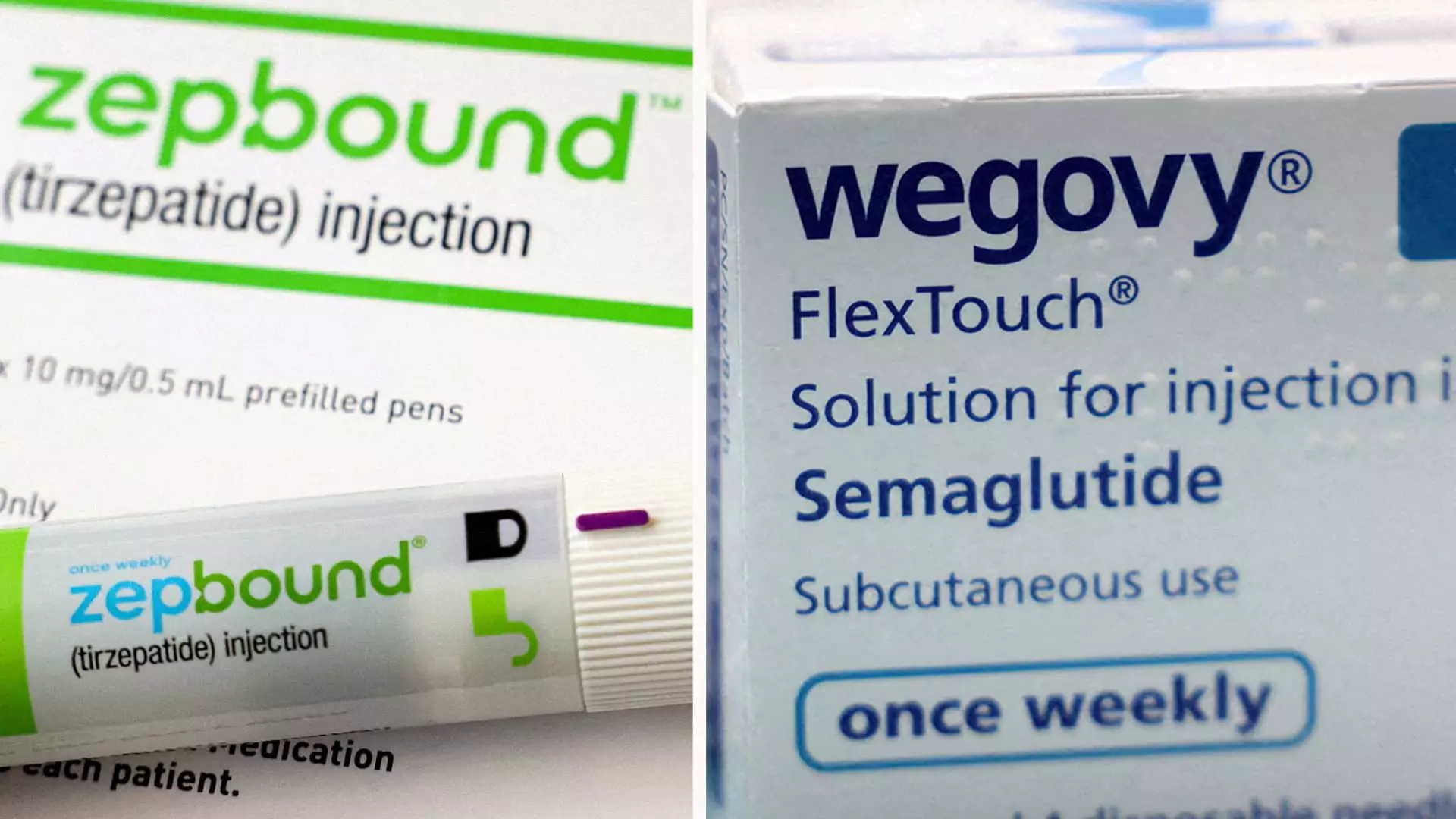The ongoing battle in the pharmaceutical industry to tackle obesity has taken an exciting turn with Eli Lilly’s latest obesity treatment, Zepbound. Recent findings from clinical trials have positioned Zepbound as a frontrunner against its primary competitor, Novo Nordisk’s Wegovy. The two drugs, both administered via weekly injections, are engineered to address the burgeoning obesity epidemic; however, emerging data suggest that Zepbound not only matches but potentially exceeds Wegovy’s efficacy in weight loss.
In a head-to-head clinical trial involving over 750 participants, Zepbound demonstrated a remarkable advantage, resulting in an average weight loss of 20.2%. This equates to about 50 pounds lost over a 72-week period. In stark contrast, participants receiving Wegovy only shed approximately 13.7% of their body weight, or around 33 pounds, during the same duration. The analysis pointed out that Zepbound exhibited a 47% greater relative weight reduction compared to Wegovy, with over 31% of subjects on Zepbound achieving a loss of at least 25% of their initial body weight. In contrast, only about 16% of Wegovy users reached similar milestones.
This direct comparison not only highlights Zepbound’s potential superiority but also corroborates findings from multiple other studies, which consistently show Zepbound’s enhanced effectiveness in weight management. As companies vie for a larger share of the lucrative weight loss drug market, expectations are mounting for Zepbound to become a preferred choice for both healthcare providers and patients.
The contrasting effectiveness of Zepbound and Wegovy may be attributed to their differing mechanisms of action. Zepbound works by engaging two crucial gut hormones—GIP and GLP-1—to suppress appetite and manage blood sugar levels more effectively. Conversely, Wegovy activates GLP-1 alone, missing the potentially beneficial impact of GIP on sugar and fat metabolism. This distinction may shed light on why Zepbound significantly outperformed Wegovy in recent trials.
It’s essential to consider the safety profiles of both medications as well. The majority of adverse effects reported for Zepbound and Wegovy have been gastrointestinal in nature, generally ranging from mild to moderate severity. Both drugs have shown favorable safety profiles that are crucial in gaining the trust of both healthcare professionals and patients.
The weight-loss drug market, projected to be worth a staggering $150 billion by the early 2030s, is witnessing growing competition. As Zepbound gears up for competitive rollout, analysts predict it could stand as one of the best-selling medications of all time, with forecasts suggesting annual sales might reach $27.2 billion by 2030.
Although the enthusiasm surrounding Zepbound is palpable, the pharmaceutical sector faces significant supply chain challenges. Both Zepbound and Wegovy have seen demand outstrip supply in the past year, necessitating substantial investments by Eli Lilly and Novo Nordisk to enhance manufacturing capabilities. As of now, the Food and Drug Administration has confirmed the availability of all doses of these medications, although obstacles persist for patients in terms of access due to inconsistent insurance coverage for weight-loss treatments. The monthly cost of these medications hovers around $1,000 without insurance, which can be a prohibitive barrier for many.
Eli Lilly’s Zepbound appears to be paving the way for a new standard in obesity treatment. The early trial results present compelling evidence of its superior efficacy compared to Wegovy and strengthen its position in a highly competitive market. As the increasing rates of obesity continue to pose a significant health risk globally, innovative solutions like Zepbound offer a beacon of hope for healthcare providers and patients alike. Moving forward, it will be crucial to monitor the full-range implications of these findings, including accessibility and long-term outcomes as this class of medication continues to evolve.


Leave a Reply